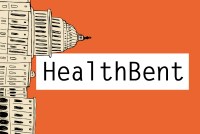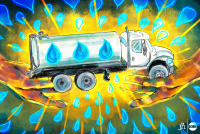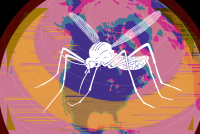
As Red States Push Strident Abortion Bans, Other Restrictions Look Less Extreme
By Julie Rovner
The Supreme Court’s conservative majority has yet to make clear its stand on Roe v. Wade. But state lawmakers aren’t waiting to consider a variety of extreme measures: bills that would ban abortions in cases of ectopic pregnancies, allow rapists’ families to object to terminating a victim’s pregnancy, or prohibit the procedure in the case of fetal disability. Do these proposals make the less extreme restrictions seem more mainstream?

Daily Edition for Tuesday, March 29, 2022
Tuesday’s California health news roundup covers mental health, covid cases, vaccines, drought, evictions, mandates, flu, alopecia, and more.

‘American Diagnosis’: ‘Water Warriors’ Tap Diné Resilience to Increase Access on Navajo Land
Over decades, federal and state policies have left many tribal communities without access to clean, running water. This episode explores what separates some Diné and other Native people in the western United States from this critical resource.

Covid and Schizophrenia: Why This Deadly Mix Can Deepen Knowledge of the Brain Disease
By April Dembosky, KQED
Recent studies from around the world have found that people with schizophrenia are as much as five times as likely to die from covid-19 as the general population. Scientists think the findings suggest schizophrenia is not just a disease of the brain, but also a disease of the immune system.

At a Tennessee Crossroads, Two Pharmacies, a Monkey, and Millions of Pills
By Brett Kelman
Prosecutors say opioid-seeking patients drove hours to get their prescriptions filled in Celina, Tennessee, where pharmacies ignored signs of substance misuse and paid cash — or “monkey bucks” — to keep customers coming back.

Daily Edition for Monday, March 28, 2022
Monday’s California health news roundup covers covid testing, BA.2 cases, boosters and vaccines, paid family leave, and more.

Delays for Autism Diagnosis and Treatment Grew Even Longer During the Pandemic
By Andy Miller and Jenny Gold
Despite increased public awareness, research advances, and wider insurance coverage for autism therapies, children often wait months — in some cases more than a year — to get an autism diagnosis and begin intervention services. The waits can be longer for Black and Latino children, and families in rural areas are also disadvantaged, without access to providers.

Los retrasos en el diagnóstico y tratamiento del autismo aumentaron durante la pandemia
By Andy Miller and Jenny Gold
La pandemia retrasó muchos servicios médicos críticos, entre ellos los del autismo. Estos tratamientos son esenciales para los niños recién diagnosticados.

Climate Change May Push the US Toward the ‘Goldilocks Zone’ for West Nile Virus
By Melissa Bailey
Colorado recently recorded the most West Nile virus deaths and cases of neuroinvasive infections in nearly two decades. Scientists warn that climate change will make conditions ripe for more West Nile transmission.

Big Pharma Is Betting on Bigger Political Ambitions From Sen. Tim Scott
By Rachana Pradhan and Victoria Knight
The South Carolina senator led the congressional pack in pharma campaign contributions for the second half of 2021. There are clear reasons.